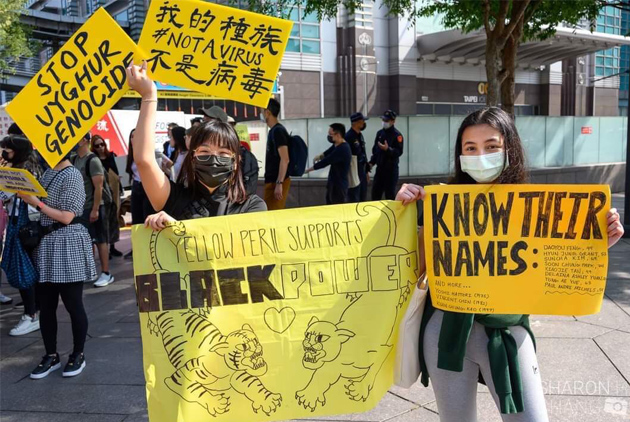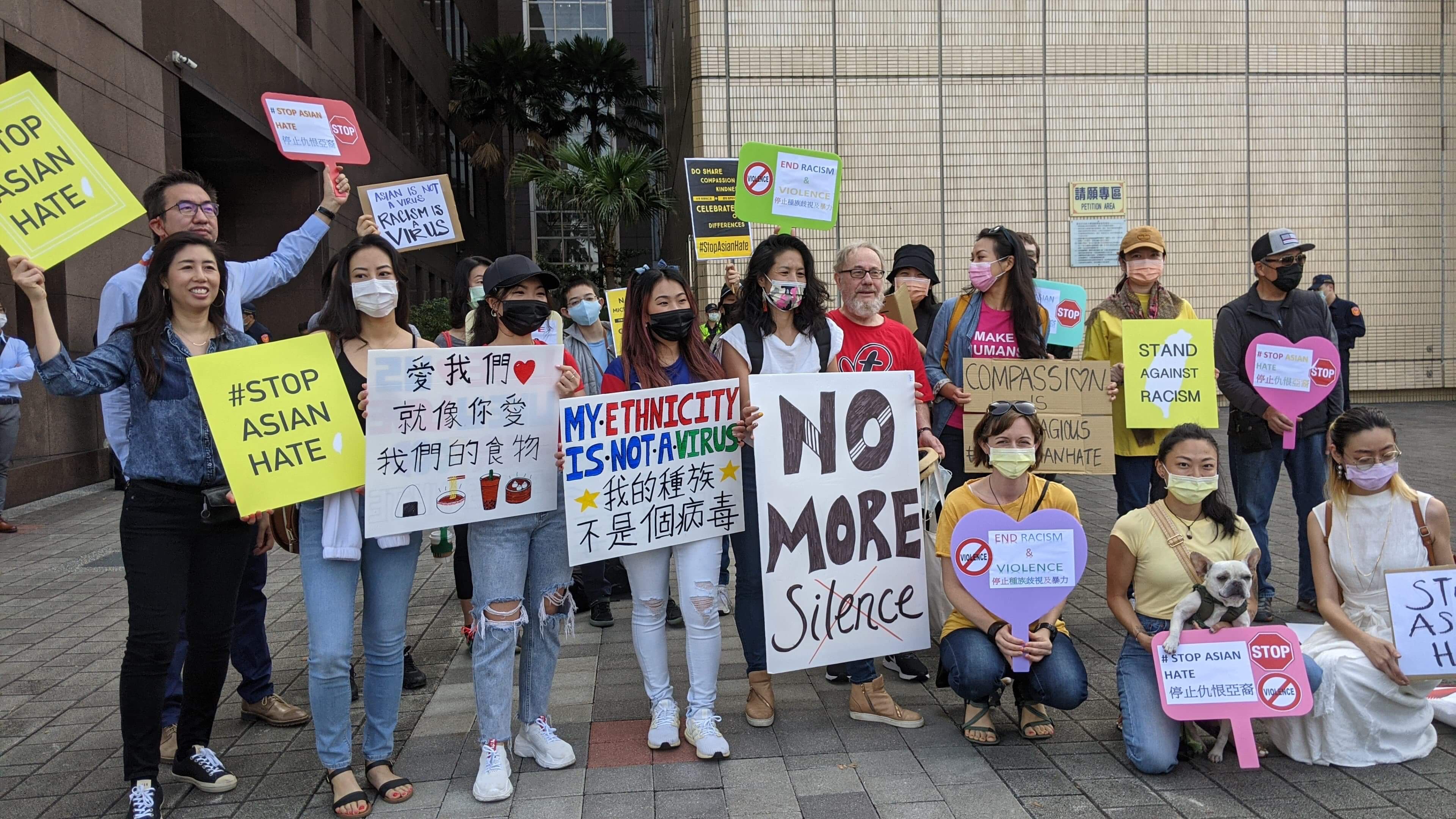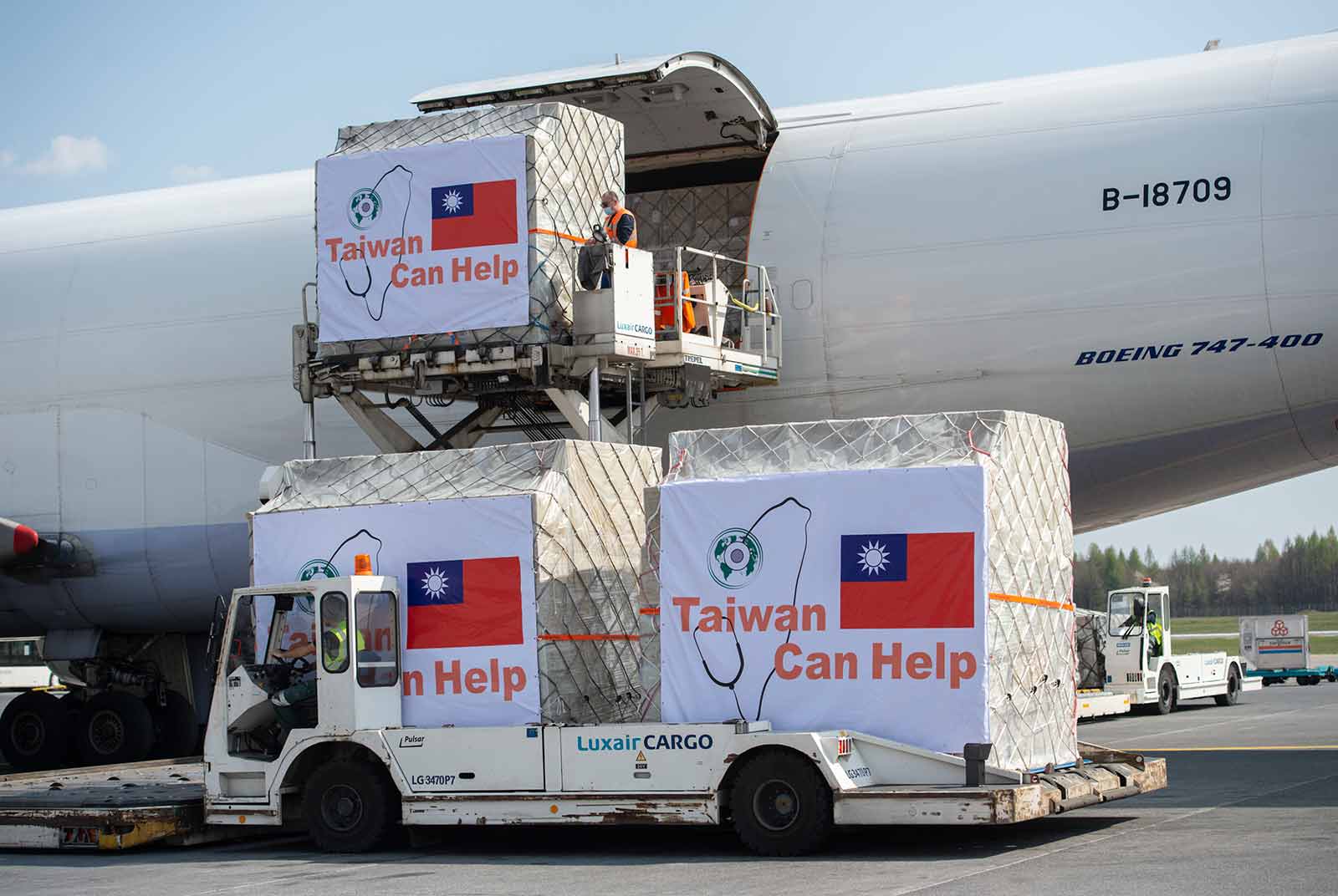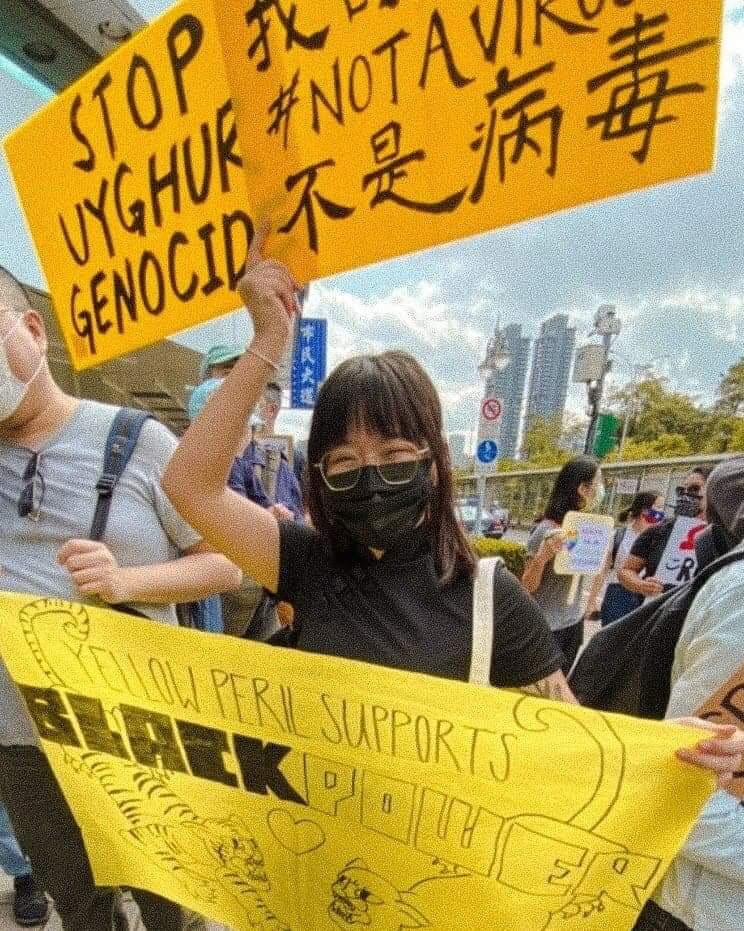#TaiwanCanHelp curb anti-Asian sentiment: stop saying "Wuhan pneumonia"

Source:Minnie Sun
The term "Wuhan pneumonia" once served a purpose. Taiwan needed a way to refer to an unknown disease from Wuhan upon its discovery late in 2019. However, with the WHO's naming of COVID-19, this excuse has expired.
Views
#TaiwanCanHelp curb anti-Asian sentiment: stop saying "Wuhan pneumonia"
By Minnie Sunweb only
"We just exist, you know. And we can't even be left alone to just exist."
That’s how I thought, two years ago, I could best convey a Taiwanese existence to my American roommate. A week ago, I muttered the same words, this time about a broader Asian identity.
We were talking about the recent #StopAsianHate community forum hosted by Taiwan Mixed, where 80+ gathered at Tacheles to talk about what this hashtag means for Asian diasporas and within Taiwanese society.
The topic at hand is heavy, but the mood is light. For a brief moment, scraps of grief from the harassment, stabbings, spitting, vandalism, threats, attacks, pepper spraying, slurs, and even Atlanta feel just the slightest less devastating. And it's nice, almost, to feel the headlines fade.
Every piece of breaking news sounds like a broken record by now. A simple Google search returns 3,800 anti-Asian incidents and a 150% rise in violence targeting Asians this past year. Though pointing fingers has not gone out of fashion with the Western public, there are, finally, mild consequences to these actions––if you say something racist, you will be called racist.
However, as Western masses argue to censure the use of "Chinese virus" for emboldening racist scapegoating, the same debate is anyone's game in Taiwan. Within each echo chamber, the lack of standardization for how COVID-19 is referred to is not associated with xenophobia but instead understood as the harmless vernacular, relevant assignment of blame, a habit that is unnecessary to quit, even patriotic, or all of the above. For all our wins combating the coronavirus, our supply of anti-Asian fuel to the West is unbelievably unrelenting. 武漢肺炎 (Wuhan pneumonia) is bandied about by just about anyone and its usage challenged by no one. Even among governmental bodies and respected news agencies, 武漢肺炎 is repeated liberally, flouting the informal (and formal) global consensus to stick to non-geographic names for the coronavirus.
But certainly, bringing harm to Asian diaspora is the last thing on any Taiwanese mind, and it's not as simple as calling out these verbal missteps and explaining their racist nature––because that is the history of a foreign country. The Taiwanese intention is only to act in self-defense, comprehensible only to those who understand the liminal corner in which Taiwan exists on the international stage. Such that, to address this as racism would be a profound mistake; behind the scathing use of 武漢肺炎 is decades, even centuries, of historical and political hurt.
 (Source: Minnie Sun)
(Source: Minnie Sun)
Taiwanese suspicion of continental China is a two-sided coin. On one hand, (Han) Taiwanese history is one of separatism. From the earliest Chinese migrants fleeing persecution with no intention of return, further enforced by the Qing Dynasty's policy of contempt towards Taiwan, to the Kuomintang's (KMT) more recent political brutality, any attempt to Sinicize Taiwanese who have long been exiled from a Chinese identity is to make a mockery of centuries-long sorrow.
On the other hand, a more pro-KMT camp is not exempt from disdain towards the Chinese Communist Party (CCP) and its perceived role in the corruption of the Chinese identity and its millennia-old culture, language, and history. International abandonment of Taiwan starts with the denial of the Republic of China (ROC) as the rightful Chinese state and ends with counting the island as CCP territory. Whether the hope is an independent Formosan republic or restoration of the Republic of China in all its glory, the Taiwanese identity has been historically neglected, disrespected, and suppressed, even to this day. The collective Taiwanese consciousness views "China" as a menacing other whose weight class renders us a non-starter, poisoning cross-strait relations for generations (to come).
 (Source: Official website of the European Union)
(Source: Official website of the European Union)
After all, the current administration's distrust of the CCP can arguably be credited for Taiwan's successful containment of the coronavirus. It makes sense, too, that Taiwanese take immense pride in their COVID-19 response, and that the Taiwanese government seized the opportunity to prove itself to the rest of the world.
Note: it's #TaiwanCanHelp, not #ROCCanHelp, not #ChineseTaipeiCanHelp, and definitely not #ChinaCanHelp. Taiwan wants to emphasize, more than anyone else: China handed the world a problem. The virus comes from China. The intention might not be to assign blame, but it works to point fingers regardless. The virus comes from Wuhan, China. Blame Wuhan. Hence the Wuhan pneumonia: 武漢肺炎. "It is an indictment of China." That's Trump's former White House Press Secretary McEnany, defending "Kung Flu." Blame China. #TaiwanCanHelp. We are not them. Remember that.
But, how can Taiwan help in the fight against anti-Asian sentiment? It's very simple: break the habit of a lifetime.
I am Taiwanese, born and raised. I feel the frustration. But Taiwan is not an isolated jungle, and other people hear what we say. To the average Westerner, the Taiwanese model becomes an alibi. If these other Asians can say it––well, they're clearly not being racist towards their own race––why can't I?
 (Source: Minnie Sun)
(Source: Minnie Sun)
Rejection of a geographic label for a virus that did, indeed, spread from China, is not to ignore that fact. It is not acquiescence to the Chinese government's failure to notify proper authorities, censorship of key information, and silencing of dissidents. Holding responsible parties accountable and not further harming Asians in the West are not mutually exclusive; rather, it is doing the Asian diaspora a disservice to not acknowledge the significance of our words, no matter our intention. Especially for those in a position of authority––governmental agencies, politicians, and community leaders: perennial refusal to recognize the consequences of anything shy of explicit racism is recklessness that borders immorality.
In Western democracies, it's baffling to imagine a government entirely unrepresentative of its people, which allows for the racist belief that all Chinese citizens are vindictive spies who approve of their government's ways or at least played some part in keeping it in power. And when evaluating which face to spit on or which body to shove, racists don't differentiate among Asians of different ethnicities, much less the CCP and Chinese or Chinese-Americans. After all, even Taiwanese people have trouble telling apart a pugnacious regime and a Chinese passport.
The term 武漢肺炎 once served a purpose. Taiwan needed a way to refer to an unknown disease from Wuhan upon its discovery late in 2019. However, with the WHO's naming of COVID-19, this excuse has expired. Taiwanese insistence on saying 武漢肺炎 is pathetic rage against a hegemonic power, and there is no purpose in disguising it as anything else.
Cutting out 武漢肺炎 from your vocabulary is, at worst, an inconvenience. Not doing so is contributing to racial violence. And even if experts are mistaken about there being any link between using geographic terms to label COVID-19 and rising anti-Asian sentiment, calling a schoolyard bully names doesn't hold them accountable; it only angers them further because it does no real damage. Putting Asians in the West in harm's way as a means of protest against Beijing is neither sensible nor effective.
So forget worrying about being anti-China; "Wuhan pneumonia" is anti-Asian, and #TaiwanCanHelp by walking away from the use of 武漢肺炎 for good.
About the author:

Minnie Sun is a co-founder of Taiwan Mixed, an English-language news aggregator for all things Taiwan. She is currently pursuing a bachelor’s degree in International Business and Sociocultural Anthropology at The George Washington University and is a visiting student at National Taiwan University.
Have you read?
♦ Hoping for a Way out of the Pandemic
♦ How Taiwan's COVID Battle is Different
♦ Taipei's Survival Story: Our Battle Against COVID-19
Uploaded by Penny Chiang






